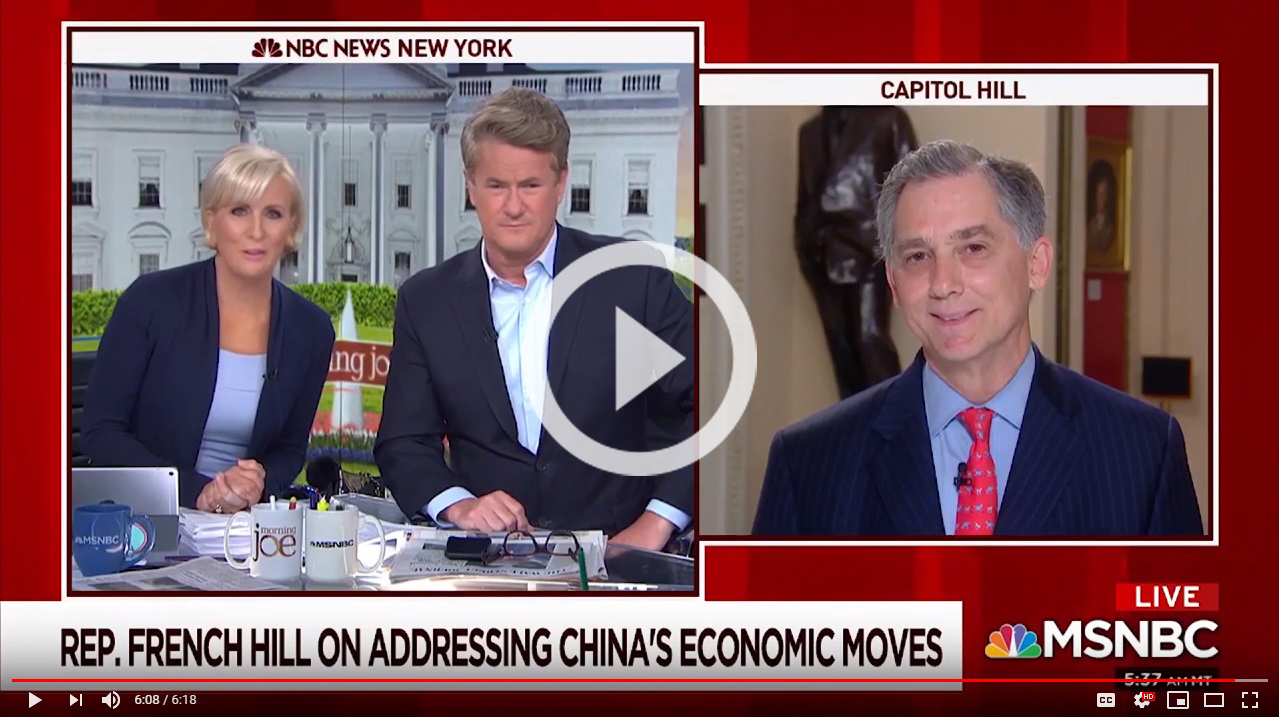Rep. Hill Talks Latest on China Trade Negotiations with MSNBC's Morning Joe
Washington,
May 8, 2019
… "I think in the short term, the tariffs, which I don't agree with necessarily as a strategic tool, have been major leverage to bring the Chinese to the table. It's something we have not tried before in the bilateral work in the Clinton, Bush, or Obama Administrations. President Trump is using a big stick to try to get them to make more structural changes in their economy. I think it's true that China generally, from a current account balance, from the impact on their trade and economy, is in a weaker position than the U.S. or global economy given these tariffs." … "After Tiananmen Square [protests], we thought the Chinese leadership would move more towards the global economy. That is why they were admitted to the WTO back in 2001. They just didn’t move forward with an open WTO compliant marketplace. They maintained and have intensified a mercantile approach to trade that has hurt the European Union and the United States. I think bilateral pressure is our number one [economic weapon], but it would be more powerful if we had the European Union and Japan in line with us publicly pressing China for these structural changes. Together, we are about 35 percent of two-way trade with China. I think they are behind the scenes, diplomatically supporting us, but they've let the United States be out in front. That is how President Trump likes being out front, charging on this issue. This is his principal economic issue tied to his campaign and his policies. Behind the scenes they are supporting us, but I think that is where we press and say, this is benefiting the E.U., this is benefiting Japan. I just came back from Tokyo recently and they were thanking the U.S. for our continued pressure militarily, and keeping the straights and seas open, and keeping the economic pressure up on China to change their policies." … "Our farm economy has been suffering for three years, principally due to weather conditions. We have had too much rain at harvest time last fall. We had too wet of a spring to get crops into the fields now. We’ve had low prices and crop quality problems for three years in a row. As a former lender to agriculture in Arkansas, I know how tough it is for our farmers, particularly for soy beans. The soy bean market has been off about seven percent since last fall due to the tariff talks. We don’t want a superficial purchase of more goods from the Chinese just to please the United States. We need these structural changes. In my state, farmers are very concerned about the direction of the China trade and the impact on their personal pocket books, and the ability to sell their crops. But they also believe that this may be the best time to get the change we need." |



